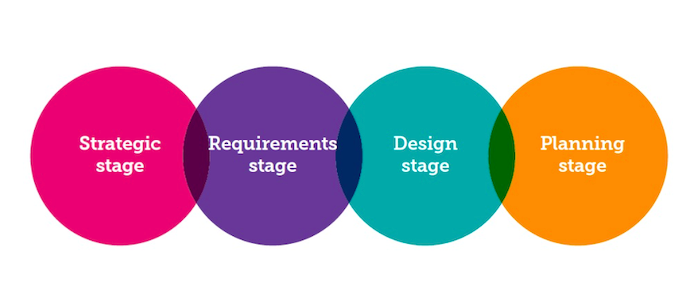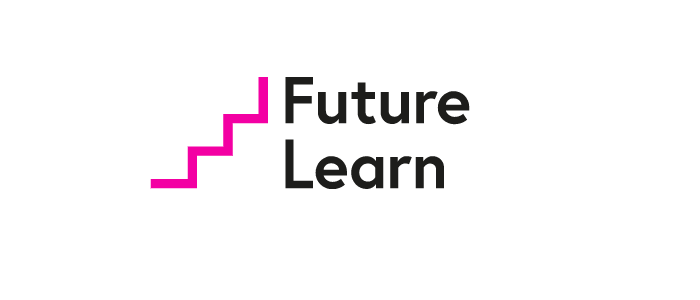Training
We have a range of different courses and learning options designed to give you access to insights from research which you can apply to professional contexts, and to acquire professional qualifications.


How to design and plan public engagement processes
A practical handbook presenting a structured and logical way to work through the task of designing and planning any engagement process.
There is a growing hunger for more, and more meaningful, citizen participation in decisions that affect our lives. Across the world, calls for open government, workplace democracy, community empowerment are gaining support, as are innovative developments in deliberative democracy.
We need people capable of designing and planning public engagement processes that are empowering and worthwhile. Experienced practitioners know that, without considerable forethought, care and preparation, public engagement processes risk achieving little or, worse, alienating people so that they never engage (with you or anyone else) again.
This Handbook, by Wendy Faulkner and Claire Bynner, seeks to deepen people’s skills in designing and planning effective public engagement processes, by providing a structured four-stage framework for tackling the task. It draws on the authors’ extensive practical experience of training and working with public engagement facilitators across sectors as well as international expertise.
Download from the Policy Scotland website
The publication of the Handbook was supported by What Works Scotland and Policy Scotland.

Supporting young people’s mental wellbeing post-COVID
This free two-week online course explore ways to support children and young people following the COVID-19 pandemic, and should be useful for teachers, social workers and parents.
The course brings together expertise and experience from across the University’s School of Education to help address some of the most common issues around young people’s emotional wellbeing in this post-COVID era.
The course looks at the COVID-19 pandemic through the lens of collective trauma and will consider what trauma may do to the developing brain as well as how isolation and loss may have impacted young people.
The materials consist of short videos, readings, discussion tasks and opportunities to reflect. The course also provides theoretical background as well as some specific strategies and tools which may be used by teachers, social workers, parents and others to encourage children and young people to both recognise and discuss their emotions post-pandemic.
Access Supporting Young People’s Mental Wellbeing Post-COVID on the FutureLearn website

Tackling Climate Change: Sustainable Business Models for a Circular Economy
The climate emergency demands sustainable solutions. Circular economies and business models have been heralded by many as an important vehicle to achieve sustainable consumption and inclusive growth.
On this four-week course, you’ll gain a solid understanding of the circular economy and how businesses can transform how they operate and contribute to sustainability.
You’ll investigate the benefits and challenges of going circular using the mindset of systems to collaborate to face the climate crisis. With this knowledge, you’ll understand how circularity can help reduce our impact on the planet.

End of Life Care: Challenges and Innovation
Explore dying and palliative care practice around the world and evaluate new trends and ideas surrounding end of life care issues.
With increasingly ageing populations, we are living longer but dying more slowly. New ideas around end of life care are therefore emerging in different contexts. You will discover the patterns and global trends taking place in palliative care, and explore these new approaches from a social science and humanities perspective.
This course is of special interest to those working in healthcare, including physicians, nurses, social workers, and other health and social care professionals.
The course will also appeal to practitioners, students, researchers, volunteers and policymakers in end of life care, as well as social activists and those working in artistic and cultural media who are working on end of life issues.
Access End of Life Care: Challenges and Innovation on the FutureLearn website

Safeguarding in Collaborative Research and International Development: Contexts, Challenges, and Opportunities
Learn fundamental safeguarding principles and how to adapt them to suit whatever research contexts you may encounter. Ensure proper safeguarding training and policies in international research.
Safeguarding training must be very context-specific in order to be effective, and this remains a major challenge in international development and research.
On this three-week course you’ll learn how to ensure safeguarding in collaborative research projects across diverse global situations.
This safeguarding course is designed for anyone working in collaborative research across different nationalities, languages, and cultures. Charities, volunteers, and NGO workers will also find it invaluable.

Communicating Climate Change for Effective Climate Action
Climate communication is vital to help equip present and future generations of decision-makers with the knowledge to take action. We need communication that drives engagement to help close the climate commitment gap that exists in government and across the public, private, and third sectors.
This four-week course will help you develop the skills to effectively communicate the science and pressing issues surrounding the climate crisis.
By the end, you’ll have a solid understanding of climate change communication, why it is so urgently needed, and how you can drive powerful communication that inspires people to act.
Designed for anyone who wants to learn how to communicate the need and basis for climate action, whether you’re delivering your message in the workplace or in your personal life.
Access Communicating Climate Change for Effective Climate Action on the FutureLearn website

Working Supportively With Refugees: Principles, Skills and Perspectives
Refugees are a diverse group, speaking many languages and of varied religions and ethnicities. This course acknowledges that skills requirements are changing rapidly and offers training for those working in this area.
Combining principles of psychological well-being, intercultural communication, interpretation and conflict management, this course will help you to understand who refugees are and how you can support their integration in the receiving countries.
The course will be of particular interest to those working with refugees in any capacity. It is aimed particularly, but not exclusively, at interpreters, NGO practitioners, volunteers, refugees, researchers, and students.

Gender-Based Violence: Responding to Intimate Partner Violence and Abuse
Expand your understanding of intimate partner violence and abuse (IPVA) and learn how to recognise and support victims of abuse.
Intimate partner violence and abuse (IPVA) and gender-based violence (GBV) are global issues. They are so prevalent that they will touch everyone in some way, whether that is through patients, acquaintances, or personal experience. For this reason, it is an area everyone should be knowledgeable about.
Intimate partner violence and abuse has a long history and there are many myths and misconceptions that surround abusive behaviours.
This four-week course will introduce you to the types of IPVA and how it can present itself in different relationships. You’ll understand the pervasiveness of IPVA, what drives it, and learn how to support people experiencing IPVA.
This course is designed for anyone who wishes to know more about IPAV, or who is impacted by this area of work, such as police officials or support workers.
It will also be useful to those studying in the fields of health, social care, law, and HR.

A Global History of Sex and Gender: Bodies and Power in the Modern World
This course offers you the chance to explore vital historical perspectives on key contemporary issues surrounding sexuality and gender, including the #MeToo movement, campaigns for gay and trans rights, equal pay, and reproductive justice.
You’ll trace today’s social justice movements back to 1600, exploring the cultural and legal contexts of sexual abuse, gender-based violence, and bodily autonomy.
Through case studies of modern social justice movements, you’ll develop your understanding of the operation of, and resistance to, patriarchal and heteronormative power in diverse historical and geographical settings. As you get to grips with sexuality and queer experiences in the modern era, you’ll explore reproductive rights issues like contraception, abortion, surrogacy, and fertility.
This course is designed for anyone interested in gendered and sexual history or history and social science more broadly. However, the inclusion of theoretical material covered in the course and assessments will be useful for heritage, third-sector, educational and media workers, looking to reskill or upskill by enhancing their gender studies portfolio and expertise.

Interpreting for Refugees: Contexts, Practices and Ethics
On this course, you’ll discover the role of the interpreter and explore the specific challenges of interpreting for refugees.
You’ll cover topics like cultural awareness, ethics and emotional reflexivity when working in situations that require cross-cultural communication.
You’ll consider the different work contexts you may be in as an interpreter for refugees, and learn the importance of your own wellbeing as well as your duty of care to the people you’re working with. You’ll also have the opportunity to connect with other interpreters and tutors to share your knowledge and experiences.
This course provides an interactive learning opportunity for anyone working in a humanitarian interpreter role, their trainers and service providers.
The course will also be of interest to humanitarian workers and intercultural mediators as well as students interested in interpretation and mediation who aspire to work for organisations that support refugees and asylum seekers.
Access Interpreting for Refugees: Contexts, Practices and Ethics on the FutureLearn website

Cultural impact of housing displacement gentrification
This course provides an introduction to gentrification and to the cultural impacts of housing displacement for people in cities and neighbourhoods across the world.
Gentrification is a term which has been used to describe the process by which wealthier people move into an area leading to the displacement of poorer groups who are priced out of the area by increases in rents and housing prices.
Gentrification is never neutral in its effects. Places change. They look and feel different and different people live there.
In this course we will learn how the term gentrification originated and the way in which the term has developed since its first sighting in the 1960s. We will consider different theoretical explanations for processes of change and ask questions about who wins and loses.
After acquiring theoretical and conceptual skills we will apply these to a series of international case studies to understand what gentrification might look like and feel like in different places. What changes? How do you measure change? What happens to the people displaced- where do they go to? Who are the newcomers?
This course will give you insights which will help you better understand neighbourhood level changes; inspire you to learn more about the interaction of social and spatial changes and to think critically about the future of neighbourhoods with which you are familiar.
Access Cultural Impact of Housing Displacement Gentrification on the Coursera website

The Right to Education: Breaking Down the Barriers
How can we support those who are marginalised and excluded from education? Does education for all, mean all?
Number 4 on the the UN’s list of global universal sustainable development goals (SDG) is “Ensure inclusive and quality education for all and promote lifelong learning”. Despite this, 59 million primary-school age children were out of school in 2013.
So, does education for all, really mean all? What are the barriers to participating in education? How do you include “all” in the classroom?
This online course will answer these and other questions, and help you join the movement to get children the world over into education.
Access The Right to Education: Breaking Down the Barriers on the FutureLearn website

Data-Driven Leadership Skills: Microcredential
Gain essential data-driven leadership skills and discover the latest theories for leading agile teams in the digital age.
This microcredential is designed for a wide range of professionals. You could be in a management structure, leadership role, or looking to gain more knowledge to develop the leadership and management skills required to lead engaged, productive, and high-achieving teams in business today and into the future.
You’ll discover new leadership strategies and methodologies that build on traditional leadership models, incorporating the new challenges and opportunities impacting leaders in the age of data and digital technology.
Access Data-Driven Leadership Skills: Microcredential on the FutureLearn website

Change Management: Microcredential
Get professional, accredited training in change management strategy and advance your career towards senior managerial roles.
A significant number of change projects fail to meet all of their objectives. This microcredential will provide you with change management methods and ideas for addressing many of the challenges associated with change projects
Using change management and leadership theory alongside real-life case studies, you’ll learn professional strategies to solve the challenges of leading change and learn how to provide a semi-systems based framework for managing the process.
Access Change Management: Microcredential on the FutureLearn website

Change Management: Microcredential
Project management is a growing and sought-after profession – the Project Management Institute estimates the career to have grown by $6.61 trillion over a seven-year period by the end of 2020.
Moreover, project management skills are in great demand, as business becomes ever more multinational and complex. Being able to professionally manage projects, activities, and tasks to a tight schedule is an ability that can set your CV apart.
On this microcredential, you’ll learn practical project management skills. Using real-world case studies, you’ll cover the project lifecycle from feasibility to closure, examining each stage and exploring practical issues such as business imperatives, managing people, setting priorities, and tight deadlines.
You’ll learn how the pieces of a project fit together, building towards a practical final assessment where you create a personal project management toolkit that can fit any workplace.
Access Practical Project Management: Microcredential on the FutureLearn website

